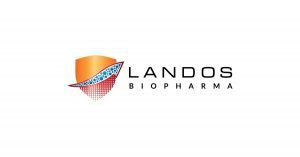
Joseph Leonelli, SVP of ATCC Federal Solutions
ATCC Wins $545 Million Contract to Respond to Emerging Infectious Disease Threats
As the world continues to grapple with the ongoing COVID-19 pandemic and the emergence of the new Omicron variant, Virginia’s ATCC secured a seven-year Delivery/Indefinite Quantity (IDIQ) contract from the National Institute of Allergy and Infectious Diseases, a division of the National Institutes of Health, valued at up to $545 million.
The contract will support the government agency’s Clinical Research, Division of Intramural Research and Vaccine Research Center with rapid response capabilities to infectious disease issues. Under terms of the contract, ATCC will be tasked with:
- Storage and repository
- Quality management
- Facilities, equipment, and resource support/operations
- Supply chain and logistics management to the government
The new contract builds on ATCC’s decades’ worth of experience supporting government agencies with the curation of high-quality biomaterials and resources, laboratory services, and repository operations.
Raymond H. Cypress, chairman and Chief Executive Officer of ATCC, said the company’s scientific, supply and cold chain logistics, and repository expertise in global health priorities will provide NIAID with rapid response capabilities to infectious disease concerns.
“With our biorepository services, including an FDA-registered facility for worldwide storage and distribution of biological materials, we are well-positioned to support NIAID with its pandemic preparedness and response,” Cypress said.
Joseph Leonelli, Senior Vice President of ATCC Federal Solution, said ATCC is the only company to have received a contract within its task area. Other task areas covered by similar NIAID contracts awarded include clinical trials, analytics, computational biotechnology, bioinformatics, and regulatory and quality assurance services. In total, 15 other companies received contracts aimed at these different areas, Leonelli said.
The contract supports the receipt of active pharmaceutical ingredients (API) necessary to develop therapies, as well as samples of the pathogens used in research. ATCC is able to store these viral samples at all biohazard containment levels at its own facilities, or through subcontractors for Biosafety Level 4 (BSL4) containment of the most threatening viruses, including various forms of hemorrhagic diseases. Biosafety Level 3 (BSL3) containment, which can be done at the company’s Manassas, Virginia site, includes the SARS-Cov-2 virus. In all, ATCC has more than 135,000 different specimens in its repository, Leonelli explained. He noted that those items are highly characterized and sorted.
“Whatever the research groups are working on within NIAID that they would want to hold in this repository for follow-on research, we’ll have for them,” Leonelli said.
As an example, Leonelli pointed to ongoing research into COVID-19 and its different variants. When the original strain of the virus first reached the U.S., samples were isolated and sent to BEI Resources, a NIAID-funded contract managed by ATCC, for storage and shipping to various research institutions. Leonelli said ATCC was able to take ownership of the samples and distribute them to government researchers within a short amount of time.
When battling an aggressive viral threat, Leonelli said speed is the key. He said the company worked tirelessly in that short time to turn the samples around and get them into the hands of the research scientists. And, when those samples reached the bench, Leonelli added that researchers can expect the highest quality of samples from ATCC due to the company’s longtime expertise in the field.
In 2017, two years prior to the emergence of the SARS-Cov-2 virus, NIAID initiated a pandemic and epidemic response that included bolstering logistics capabilities to rapidly transport viral samples to various research agencies across the country. The government launched the initiative following outbreaks of the Zika virus across South America in 2016 and the Ebola virus across parts of West Africa in 2014. The COVID‐19 outbreak drove home the immediate need for more efficient reaction times and mechanisms to improve response and quality services, Leonelli said.
ATCC’s new contract will enable the industry to continue its rapid transformation that builds on the capabilities to shift focus on a dime and emphasize speed to market, Rebecca Bradford, senior director for government programs at ATCC, said. She added that taking years to bring products through the clinic and regulatory hurdles is no longer realistic given the speed at which pathogens like COVID-19 can move through society.
“This new contract mechanism will help NIAID and government agencies move a lot faster and quicker. This is not only for bench side research, but also for moving critical clinical work towards the bedside. That’s the real goal here, to get these countermeasures out to market. That’s the key,” Bradford said.
She added that ATCC is an operations and logistics specialist. The company is able to address all the integrated parts of the research development and preclinical process and help move them forward.
With the rise of the Omicron variant, Leonelli said the pace at which ATCC and the scientific community have been operating the past two years will not slow down. He said ATCC will continue its efforts to combat the ongoing pandemic. Leonelli noted that ATCC has been in contact with health agencies and researchers across the globe to understand the new variant and what that means for public health.
“The amount of international collaboration and cooperation during the COVID-19 pandemic has been truly remarkable. We’re really proud to service the life sciences community,” Leonelli said.





